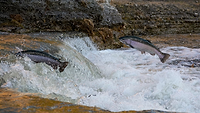Experts Urge Overhaul of UK Standards for PFAS in Drinking Water, Report Concerning Levels of Contamination

Image credit: Vlada Karpovich via Pexels
With a recent call to the UK Government urging more stringent regulation of per- and polyflouralkyl substances (PFAS) in drinking water, the Royal Society of Chemistry (RSC) has joined the global force of non-governmental organizations and expert groups calling for action against the “forever chemicals.”
PFAS, of which there are more than 4,700 types, are becoming an issue of increasing concern as evidence of their indefinite persistence and pervasiveness in the environment and human body, as well as their associated heath harms, begin to mount.
Some regulatory bodies have already taken steps to mitigate PFAS use and environmental contamination, such as the European Commission setting limits for the chemicals in certain foods in 2022, and the U.S. Environmental Protection Agency (EPA) drafting a rule that would set maximum limits for PFAS in drinking water. Expert groups and advisory agencies have been asking for regulatory action against PFAS, for example, a coalition of scientists who wrote to the World Health Organization (WHO) expressing concerns over a too-lax stance on PFAS in drinking water, and the U.S. Government Accountability Office (GAO) recommending that the U.S. Food and Drug Administration (FDA) request expanded authorities to adequately review the safety of substances like PFAS in food contact materials (FCMs).
Now, RSC is presenting the findings of a recent analysis that reveals more than a third of water courses tested in England and Wales contain medium- to high-risk levels of PFAS, and is calling upon the UK Government to overhaul its drinking water standards. Specifically, RSC is urging action on five points:
- Reduce the current limit for individual types of PFAS from 100 nanograms per liter (ng/L) to 10 ng/L of drinking water
- Introduce a limit of 100ng/L on the total combined level of PFAS in drinking water
- Ensure that the hundreds of sources of PFAS contamination in the UK are reported and recorded in a national inventory
- Impose and enforce stricter regulatory limits on allowable levels of PFAS in industrial discharges
- Set up a national chemicals regulator to provide strategic coordination of monitoring and regulation of all chemical contaminants, including PFAS.
Using the findings of its recent analysis, RSC also developed an interactive map to visualize the extent of PFAS contamination in UK’s drinking water sources, including the names and contact information of the Member of Parliament (MP) responsible for each area of contamination so constituents can write to them with their concerns. Hotspots of PFAS contamination that present a high risk to human health identified on the map include the Wyre Plant Discharge Trade Effluent, the Duxford STW Trade Effluent, and the River Thames, with 12,100.9 ng/L, 3,690 ng/L, and up to 4,931.1 ng/L levels of combined PFAS concentration, respectively.
RSC found that contamination is likely to be an issue in water courses near sites where there has been a significant discharge of PFAS, including airports, military sites, fire training areas, and other places where firefighting foam is used; industrial facilities that produce or use PFAS; wastewater treatment plants; landfill sites; and incinerators.
In its call to the UK Governemnt, RSC emphasized the damaging health effects of PFAS, including, but not limited to, testicular cancer and other types of cancer, thyroid disease, increased cholesterol, liver damage, fertility issues, and harm to unborn children. RSC reinforced that knowledge that PFAS break down slowly, with some taking more than a thousand years to dissolve, and that the forever chemicals are entering the environment through their use in a wide range of products.
RSC is a registered charity in the UK that aims to advance chemical science and serve the public interest by acting in an objective advisory, consultative, or representative capacity in matters relating to the science and practice of chemistry.
Looking for a reprint of this article?
From high-res PDFs to custom plaques, order your copy today!






